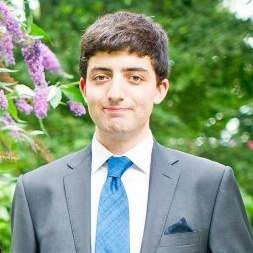Neeme Järvi brought his fine Swiss orchestra to Manchester for a deeply moving evening of Pärt, Grieg and Tchaikovsky, leaving a large audience very quiet as they left the Bridgewater Hall.
Tchaikovsky wrote his Sixth Symphony amid substantial personal turmoil, despite the relatively recent success of his Fifth. Few works can be as tormented as the Pathétique, particularly when played with the intensity of emotion given to tonight’s account of it. At the heart of this was the contrast set up by the strings between fiercely attacked semiquaver passages and impassioned legato. The softer material, of course, prevails in the end, but the anger of the first movement, and stubborn ebullience of the third, set the finale up for quite a fall.
The capricious changes in mood of the first movement were handled very well, launching into sudden intensity with the entry of the brass before slipping into the second subject beautifully softly. There was a particularly fine moment of stillness as the wistful clarinet melody faded, followed by a sudden reignition of the drama. Then came a succession of crisply articulated exchanges between strings and wind, the intensity obvious to see in the violas’ bows flying off the strings. The coda showed some exceptionally well controlled pianissimo in the brass and another excellent clarinet solo.
After a light, drifting second movement tinged with elegant sadness, the third movement’s festivities felt brashly impolite. The forced optimism benefited greatly from witty articulation in the woodwind and pompous brass, creating an almost convincing change of direction in the symphony. After romping to an optimistic close, Järvi gave little chance for reflection before launching into the finale directly. This very effectively shattered the preceding triumph, revealing it to be entirely superficial. His direction in the fourth movement was superb. The stuttering string phrases were optimally spaced to allow the hall’s ample reverberation to be appreciated, and the slow descent to the end was quite distressing. The momentary anger of the strings above stopped horns was succeeded by a sense of resigned sadness, leading to a tragic end.
Works by Järvi’s fellow Estonian Arvo Pärt bookended the concert. His Cantus in Memory of Britten was a very suitable encore to the symphony. Its solemn, repeated descending string figure, accompanied by a solitary tubular bell, detracted nothing from the stricken atmosphere set up by the Tchaikovsky. The advertised concert-opener, Pärt’s 2012 Silhouette, was written to celebrate the appointment of another Järvi, Neeme’s son Paavo, as chief conductor of the Orchestre de Paris. His inspiration was Gustave Eiffel’s eponymous tower, which is expressed through effective combinations of stasis and elegant movement. Its construction is also recalled in the mechanical chime of the percussion section, tasked with many unusual requirements including the use of double bass bows on the tam-tam to create ethereal harmonics. A central waltz section brings to mind the elegant curve of the tower, and the clear string textures near the end effectively evoked a sense of airiness.
Russian pianist Boris Berezovsky was soloist for Grieg’s popular Piano Concerto. The challenge in performing such a well-trodden work lies in finding something fresh, which pianist and conductor managed admirably. They shaped a performance which seemed to suit the rest of the concert programme: this wasn’t a dramatic, heroic account, but a more pensive and gentle reading, confirmed by a repeat of the slow movement as encore.
The first surprise came at the first note, where Järvi gave his upbeat for the opening timpani solo before he had even fully climbed onto the rostrum and applause was still echoing around the hall. This created a rather breathless start, which was developed into a generally restless first movement. There were no sudden tempo changes, but a prolonged sense of quiet unease. This was matched by the beautiful tone and graceful portamento of the lower strings. In the second movement these tensions were quietly worked out with superb horn and cello solos. Berezovsky played with impressive lightness of touch, occasionally leaving the orchestra fractionally behind, but elsewhere interacting well in unexpected moments which Järvi sought to highlight.
The third movement was quick and fairly aggressive from the outset, with the first outing of the F major theme sufficiently unsentimental to leave earlier tensions unresolved. Berezovsky’s return to the A minor music which opens the movement was shaped with originality, growing into the drama steadily rather than exploding. The final return to the major key was bold and warming without the tempo being pulled back too far, making for a satisfying end to a coherent performance.


